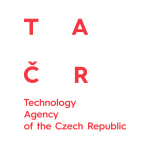Leader of consortium:
AQUATEST Plc.
Consortium members:
Palacky University Olomouc, Technical University of Liberec, DEKONTA Plc., GEOtest Plc., MEGA Plc., LAC Ltd.
Person Responsible:
Description:
Technologies based on reductive effect of metal nanoparticles (especially metallic iron nanoparticles) for remediation of ground water, waste and surface water. These technologies are effective for various types of contamination, are relatively fast and have very little negative impact on the environment. From this perspective, they are modern rehabilitation techniques with high added value. It has been shown that nanoparticles of metallic iron are able to remove more than 70 different substances, environmental contaminants, including chlorinated hydrocarbons, nitro derivatives, herbicides, some heavy metals, arsenic, and radionuclides.
Within the work package, these technologies are developed and optimized, crucial part of the package is verification of technologies at a variety of locations. UPOL deals with development of nanomaterials, their complex characterization in terms of physical and chemical properties. TUL is responsible for laboratory testing of materials in terms of reactivity, migration, and potential negative impact on the environment. LAC has responsibility for production of nanomaterials in quantities needed for pilot testing (or for full deployment) in sites and in case of successful applications as well as for introduction to production. AQUATEST is up to scheme of pilot applications and their evaluation (with individual applicators) and make requests to influence properties of final product. Other members of the consortium test the materials developed on sites with various type of pollution, in different geological environments and on variety of water types.
The main objective of this work package is introduction of cost-effective and environmentally friendly technology based on modified metallic iron nanoparticles for water treatment.
Outputs:
- Development, optimization and pilot/operational production of metal nanoparticles (especially metallic iron nanoparticles) with controlled properties and functionalized surfaces (biosurfactants and so on.).
- Technology using metallic iron nanoparticles with controlled properties for treatment of surface and ground water on model sites (ground water, industrial waste wates and surface waters), as well as for treatment of sediments, solid waste and for-reductive bioremediation applications associated with water treatment.


